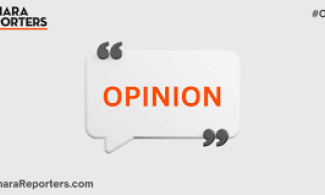
On March 14, 2024, rural women from communities in the Federal Capital Territory of Nigeria expressed concerns over women's low inclusion in politics.
The women lamented neglect and financial constraints as problems in assessing political and leadership positions. The outcome of the 2023 general elections is evidence of low women's political leadership representation.
The low participation of women in political leadership results in less development for the nation since not all capable human resources are utilized.
To build women’s capacity for greater inclusion in leadership, the Nigerian government should foster avenues for knowledge acquisition and networking.
The mass media should also commit to projecting the effects of disadvantageous cultural beliefs. Sharing content that influences and shapes cultural beliefs would boost inclusivity. The Nigerian government should likewise invest in initiatives that fund and encourage women's political dreams and aspirations.
A significant number of Nigerian women still face a lot of social and financial challenges despite having fundamental political rights. These social challenges are exemplified by disadvantageous cultural beliefs.
Cultural beliefs such as early girl-child marriage disrupt girls’ education, affecting their political aspirations and dreams. A report by Save the Children International reveals that Nigeria homes 23 million girl-child brides which inadvertently results in the low representation of women. Addressing disadvantageous cultural beliefs such as this requires the full leverage of the media.
The mass media should be leveraged to influence and shape the public's perception of cultural beliefs. Media content, in the form of broadcast and print, should be employed to address detrimental cultural beliefs. Addressing cultural beliefs limiting women's political dreams and aspirations would propel their representation in politics.
Similarly, like disadvantageous cultural beliefs, financial constraints hinder most Nigerian women from pursuing political ambitions.
According to a report, women make up over 60% of the poorest people in Nigeria. Consequently, these challenges result in their low participation and underrepresentation in politics. The Nigerian government should subscribe to initiatives like financial empowerment to change this trend.
Financial empowerment will help enthusiastic but less privileged women to fund their political ambitions. Empowerment schemes could be in the form of low-interest loans, subsidized political forms, subsidies to cover campaign expenses, or special grants.
Furthermore, inadequate knowledge of politics in Nigeria propels the low participation and underrepresentation of women in the Nigerian political sphere. Low participation in politics perpetuates the stereotype that politics is a man’s game.
To bridge the enormous gap, the Nigerian government should prioritize political-related training. For instance, the adoption and promotion of the Emerging Women In Politics (E-WIP) initiative, which aims to train enthusiastic women in politics.
E-WIP is an initiative by the Kwara state government to train active and enthusiastic women in politics. The Nigerian government can promote E-WIP by setting up and investing in agencies across states.
These agencies would collaborate with civil organizations and women's associations to facilitate the E-WIP initiative. Collaborations with women's associations such as Women Impacting Nigeria (WIN) will facilitate women's knowledge of politics and boost their political participation and representation. Aside from learning, platforms like E-WIP are great avenues for women to connect with like-minded individuals.
The Nigerian government's collaborations with women groups, financial empowerment of enthusiastic women, and media content will facilitate women’s participation and representation in political matters.
The Nigerian government should collaborate with civil organizations and women's groups to stop women's political discrimination and underrepresentation. They should facilitate training to enhance women’s understanding of politics. Likewise, media content should be tailored towards spurring women's political involvement.
Inclusivity forms a crucial foundation for a thriving democratic system. Nigeria's democratic situation calls for gender inclusion to address issues such as social unrest, economic hardship, and draconian policies.
Favour Adeboye is a writing fellow at African Liberty.